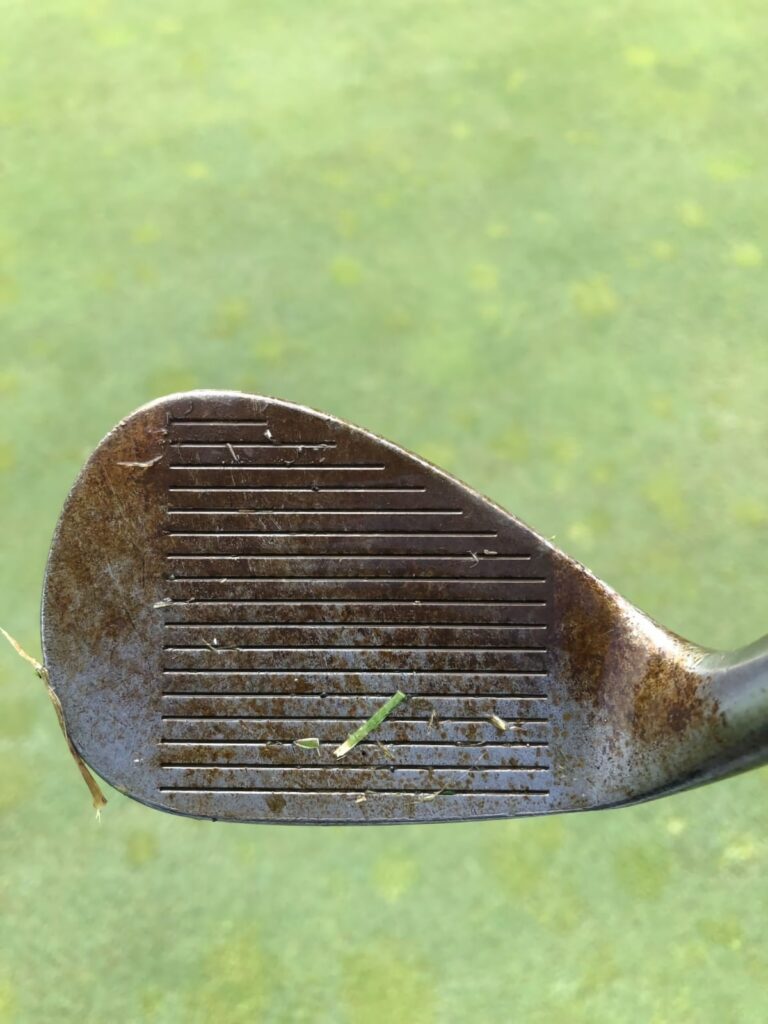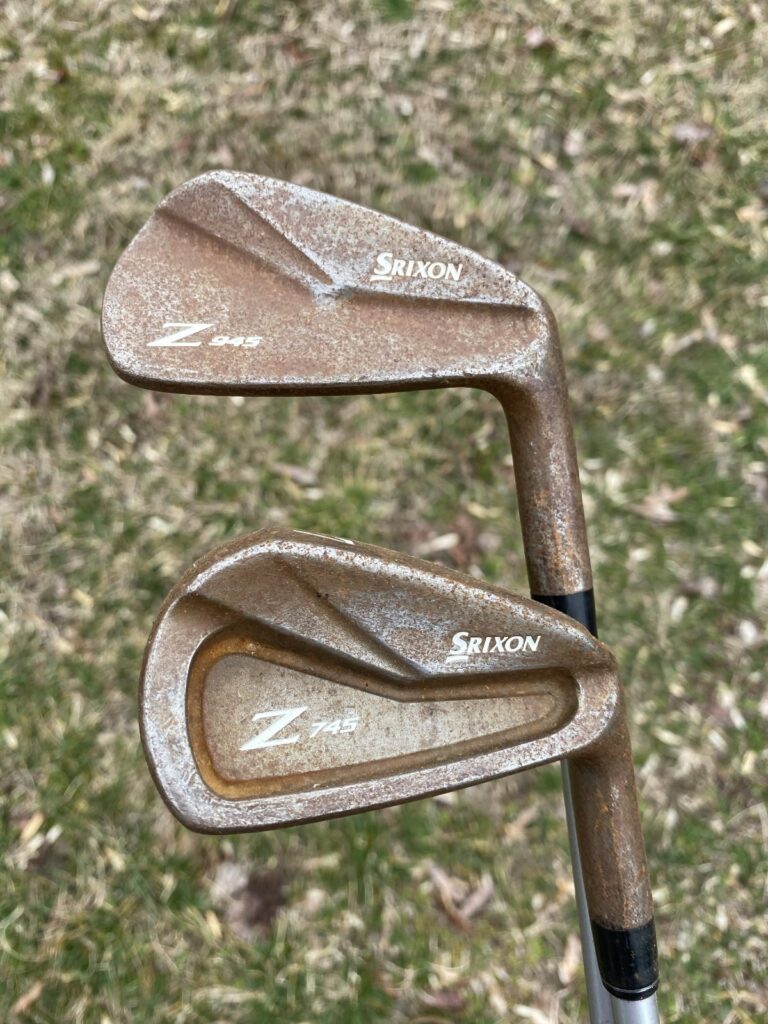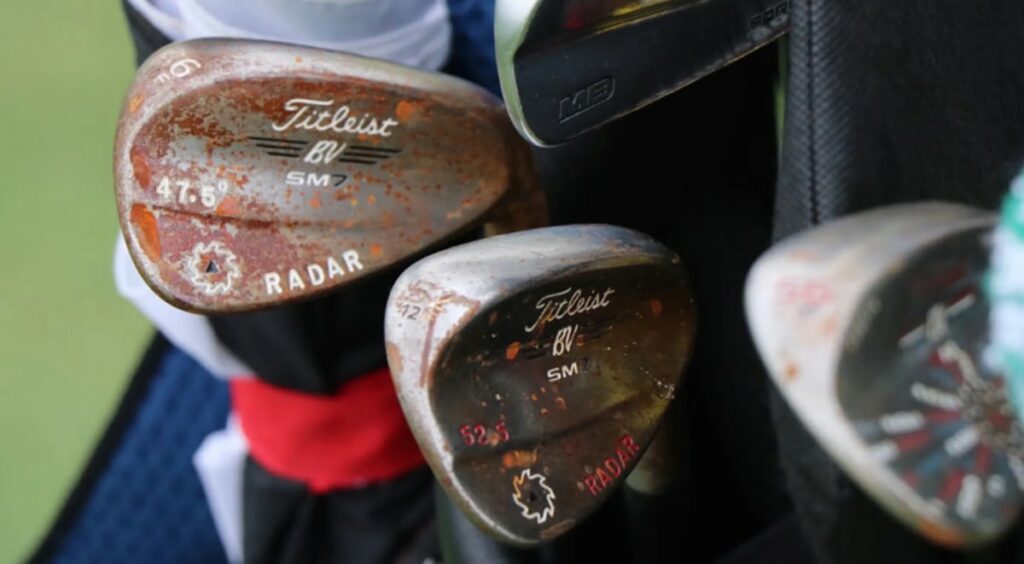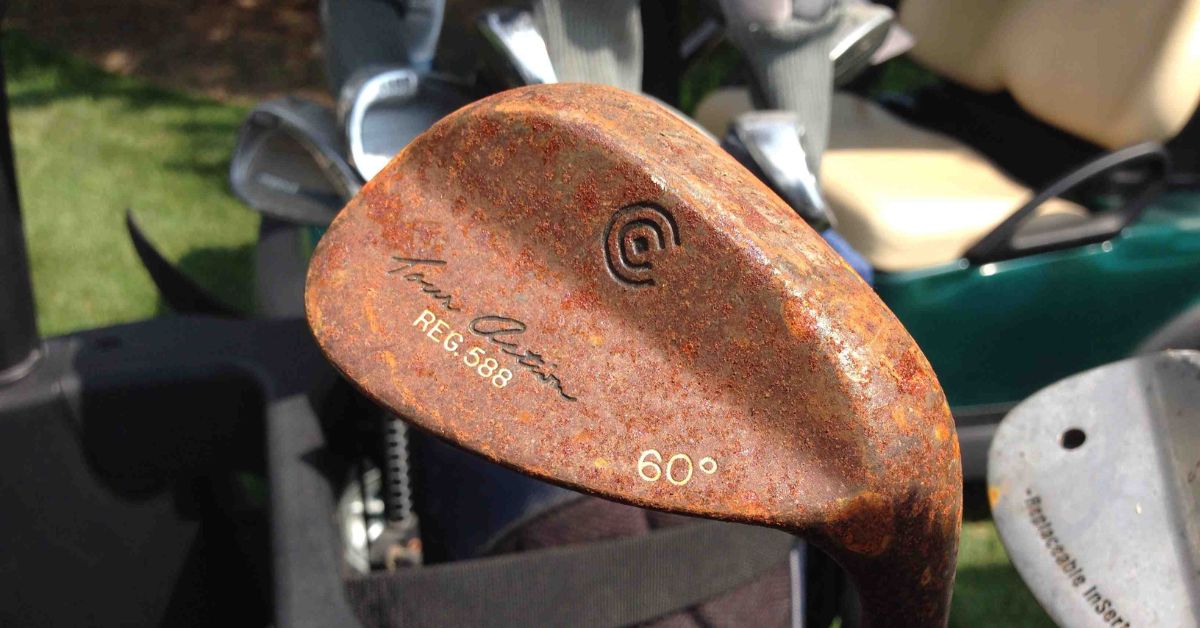Golfers are always looking for ways to generate more spin with their wedges, making it easier to stop the ball on the green with approach shots.
The grooves on the clubface influence spin more than anything. However, some golfers believe that rust on the face can produce more friction against the ball for extra spin.
In this article, you’ll learn how to rust wedges. Also, find out whether rusty wedges actually spin more, or if it’s simply a golf myth!
How to Rust Wedges
To rust wedges, the club head must be raw steel without chrome plating. Firstly, mix a solution of hydrogen peroxide, white vinegar, and table salt. Then, spray the mixture onto the club head. This will rapidly speed up the rusting process, and the club head will begin rusting within seconds.

How to Rust Wedges Quickly
The vast majority of wedges in the marketplace feature nickel chrome plating that prevents the club from developing a thin layer of rust.
However, some club heads are manufactured in raw steel without chrome plating. These will rust over time, which softens feel, reduces glare, and can even increase spin.
While raw club heads will rust naturally over months and years of exposure to air and water, there is a way to fast-track the rusting process to several minutes.
Firstly, mix a solution of the following ingredients:
- 16oz hydrogen peroxide
- 2oz white vinegar
- 1/2 tablespoon of salt
Then, simply spray the solution on the club head. In just a few minutes, the raw steel club head will begin to develop a rust layer, which will darken over time to a beautiful patina.
PRO TIP: Apply a layer of electrical tape to the areas on the club head that you don’t want to rust immediately.
Benefits of Using a Rusty Wedge
Rusty wedges are mainly an aesthetic choice for golfers who prefer their club heads to develop a patina over time, with a “worn” look.
However, there are two main benefits of using rusty wedges:
- Reduces glare: When the club is resting behind the ball, a shiny chrome-plated finish can reflect the sunlight — which can be distracting. On the other hand, a rusted clubface will absorb the sunlight, making it easier to focus on the shot.
- More spin in wet conditions: According to studies by TaylorMade, raw clubfaces spin more than chrome-plated clubfaces in wet conditions. This is due to the inherent roughness of raw steel compared to chrome, which helps preserve friction between the clubface and ball.

Do Rusty Wedges Spin More?
According to a study by TaylorMade, there is very little difference in spin performance between raw wedges and chrome-plated wedges in dry conditions. However, raw wedges performed with better spin than chrome wedges in wet conditions.
With chrome wedges, there was a 50% reduction in spin levels in wet conditions. But with raw wedges, there was only a 25% reduction.
The reason for this performance improvement is “the inherent roughness of raw steel compared to chrome, which helps preserve friction between the clubface and the ball”.
Regardless, the difference in spin rates between raw and chrome wedges is minute for amateur golfers. Instead, rusting should be largely an aesthetic decision.
Do Pros Use Rusty Wedges?
Tour players have long preferred raw wedges, for the benefits stated above. The raw finish also enables the sole grind to be altered depending on course conditions.
In this video by PGA Tour, they explore Jordan Spieth’s preference for rusty wedges over a chrome-plated finish. In 2015, he used a tour-only model of Vokey SM5 wedges with a raw finish, which later became available for retail.
Justin Thomas is another professional golfer who prefers a rusted finish on his wedges, check out his 2019 bag of raw Vokey SM7s below:

Conclusion
To rust wedges quickly at home, simply mix a solution with the following ingredients:
- 16oz hydrogen peroxide
- 2oz white vinegar
- 1/2 tablespoon of salt
Spray the solution onto the club head, and watch a layer of rust develop in minutes!


